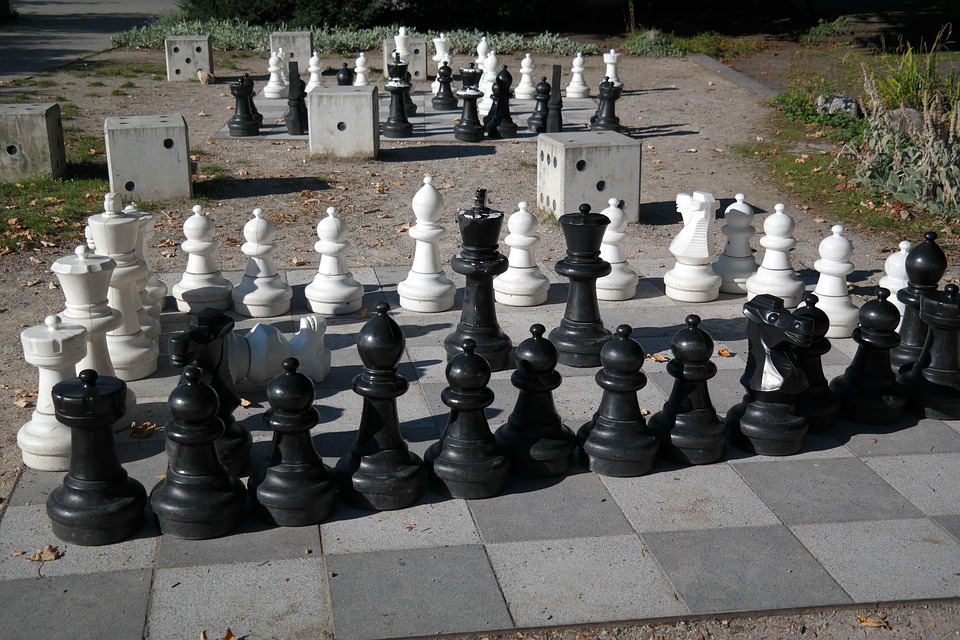chess on line has emerged as a vibrant arena where players from all corners of the globe come together to test their skills and strategies. With various online platforms like Chess.com and Lichess.org, enthusiasts can enjoy a unique playing experience tailored to their preferences. This guide delves into the features, strategies, and community interactions that define the world of online chess, ensuring that both novices and seasoned players find valuable insights to enhance their game.
From exploring subscription benefits to uncovering effective strategies for performance improvement, this overview aims to arm players with the tools necessary for success in the digital chess landscape. The social aspect of online chess is equally important, offering avenues for connection and competition through forums and tournaments that strengthen the sense of community among players.
Online Chess Platforms

As the popularity of chess continues to rise, online platforms have become the go-to spaces for players of all levels to compete, learn, and connect. Two of the most recognized platforms in the chess community are Chess.com and Lichess.org. Each offers unique features that cater to different preferences and playing styles, making them suitable for varying audiences.
Both Chess.com and Lichess.org provide extensive resources, including tutorials, puzzles, and community forums. However, they differ in user experience, subscription options, and available features. Understanding these nuances can help players choose the platform that best fits their needs.
Comparison of Chess Platforms, Chess on line
The following table presents a comparison of Chess.com and Lichess.org, focusing on subscription options and benefits. This will help players identify which features are available under free and premium memberships.
| Platform | Free Membership Features | Premium Membership Features | Subscription Cost |
|---|---|---|---|
| Chess.com |
|
|
$5/month (annual subscription) |
| Lichess.org |
|
|
Free (donation optional) |
“Both Chess.com and Lichess.org offer rich experiences, but their funding models and features can significantly influence a player’s choice.”
Chess.com is known for its robust social features, such as forums and community groups, while Lichess.org emphasizes a clean interface and open-source philosophy. This makes Lichess.org a favorite among players who prefer a straightforward playing experience without the distractions of advertisements. In contrast, Chess.com provides more structured learning pathways and competitive opportunities.
Strategies for Playing Chess Online: Chess On Line

Playing chess online presents unique opportunities and challenges. To improve your performance, it’s essential to adopt effective strategies that cater to the digital format of the game. This involves not only honing your skills through practice but also analyzing your past games to identify areas for growth. By understanding common strategies and employing them thoughtfully, you can enhance your gameplay and become a more formidable opponent.
One of the most effective methods of becoming a better chess player is to analyze your previous games. Reviewing past matches allows you to identify weaknesses in your strategy, pinpoint recurring mistakes, and evaluate your decision-making process. This self-assessment is critical, as the lessons learned can be directly applied to future games, leading to improved performance. Taking the time to reflect on your playstyle helps in recognizing patterns in both your strengths and weaknesses.
Common Opening Strategies in Online Chess
The beginning of a chess game is crucial, setting the tone for the rest of the match. Utilizing well-established opening strategies not only helps in establishing a strong position but also prepares you for different responses from your opponent. Here are some common opening strategies frequently employed in online chess:
- The Italian Game: This opening focuses on rapid development of pieces towards the center, allowing for quick attacks on the f7 pawn.
- The Sicilian Defense: A popular response to 1.e4, this strategy aims to counterattack by creating an asymmetrical pawn structure.
- The French Defense: By playing 1.e4 e6, Black prepares to develop the pieces while maintaining a solid pawn structure.
- Queen’s Gambit: This opening involves offering a pawn to gain control of the center. It’s known for leading to rich tactical positions.
- The King’s Indian Defense: This strategy allows Black to develop pieces rapidly while planning for counterplay against White’s center.
- The Ruy Lopez: Named after a Spanish priest, this opening focuses on controlling the center and preparing for a long-term strategy.
- The Nimzo-Indian Defense: A flexible opening that allows Black to challenge the center while developing pieces harmoniously.
These strategies are fundamental for building a strong foundation in online chess. Each one has its unique objectives and complexities, making them valuable tools for players looking to enhance their game. Remember, mastering these openings requires practice and adaptability, as opponents may respond in unexpected ways.
“Understanding the principles behind each opening can significantly improve your overall chess understanding and performance.”
Community and Social Interaction in Online Chess

The online chess world has transformed the traditional game into a vibrant community where players from diverse backgrounds come together. Forums and chat functions have become essential tools for fostering connections among players, enabling them to share experiences, strategies, and even personal stories. This communal aspect enhances the enjoyment of the game and creates a welcoming environment for both beginners and seasoned players alike.
The integration of chat functions in various online platforms allows players to engage in real-time conversations, discuss strategies, and even form friendships. These interactions not only enrich the gaming experience but also provide valuable feedback on playing styles and personal growth. Online tournaments further amplify this sense of community, as they create opportunities for networking and collaboration among participants.
Forums and Chat Functions in Online Chess
Forums serve as a digital gathering space where chess enthusiasts can dive deep into discussions about trends, strategies, and personal anecdotes. This engagement fosters a supportive environment, encouraging players to contribute and learn from one another. Chat functions during games allow for immediate interaction, making the experience more social and less solitary.
“The essence of chess is not just in the moves made on the board, but in the connections formed through shared passion and knowledge.”
Online Tournaments as Networking Opportunities
Online tournaments not only provide a platform for competition but also facilitate networking among players. These events allow participants to meet others with similar interests and skill levels, fostering collaborations and friendships that extend beyond the tournament itself. The shared experience of competing can lead to long-lasting relationships and even mentorship opportunities.
| Type of Tournament | Description | Format |
|---|---|---|
| Round Robin | Each player competes against every other player. | Multiple rounds, all players play an equal number of matches. |
| Swiss System | Players are paired based on their current scores after each round. | Fixed number of rounds, accommodating varying numbers of participants. |
| Knockout | Players compete in single-elimination matches. | Winners advance to the next round until a champion is determined. |
| Team Tournaments | Players form teams to compete against other teams. | Team-based matchups, often using a Swiss or knockout format. |
| Blitz and Bullet Tournaments | Fast-paced matches with strict time limits. | Short time controls, typically 3-5 minutes per game. |

